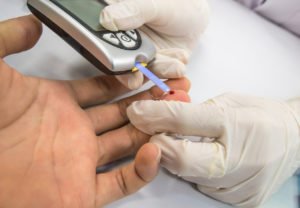New Zealand researchers have uncovered a new mechanism that controls how insulin is released in the body, raising hopes for developing targeted treatments for type-2 diabetes.
 The research, published today in The Journal of Biological Chemistry, was led by University of Auckland’s Professor Peter Shepherd. Prof Shepherd told RadioLive that his team had found a gene called TCF7L2 binds directly to the beta-catenin protein, driving a mechanism that controls the release of insulin in the body.
The research, published today in The Journal of Biological Chemistry, was led by University of Auckland’s Professor Peter Shepherd. Prof Shepherd told RadioLive that his team had found a gene called TCF7L2 binds directly to the beta-catenin protein, driving a mechanism that controls the release of insulin in the body.
He said the mechanism was like a “volume control” on a TV, regulating how much insulin is available at a given time and ensuring the right amount was available at the right time. The findings would give researchers a better handle on why some people are more at risk of diabetes and hopefully lead to new treatments, Prof Shepherd said.
Read more about the research on scimex.org.
The research was covered by several NZ media outlets, including:
RadioLive: Kiwi Scientists Make Major Diabetes Breakthrough
Newshub: Diabetes cure a step closer with Kiwi discovery
NZ Herald: NZ study reveals new mechanism that could offer fresh hope for type-2 diabetes sufferers
Stuff.co.nz: Auckland researchers discover missing link in diabetes treatment